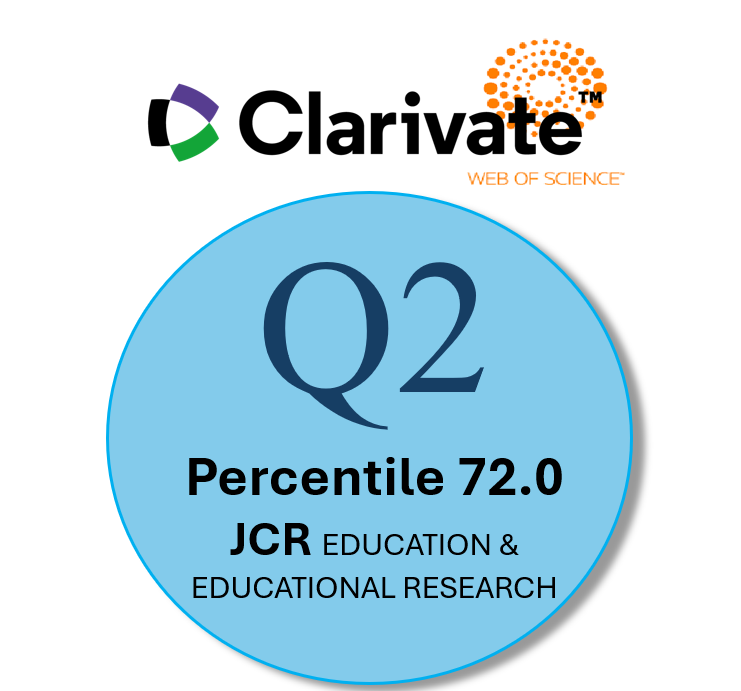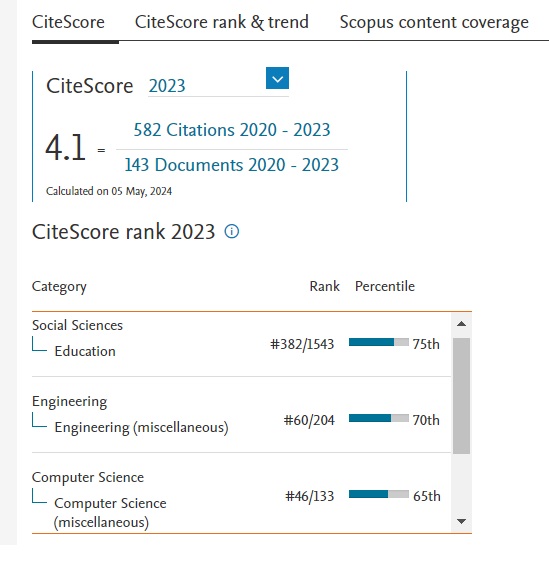Análisis de las políticas de enseñanza universitaria en España en tiempos de Covid-19. La presencialidad adaptada
Agencias de apoyo
- Este estudio no ha recibido ninguna financiación externa
Resumen
En este artículo se analizan las propuestas de política educativa que las universidades públicas españolas han preparado para el nuevo curso escolar 2020-21 condicionado por la pandemia de la pandemia Covid-19. El estudio se basa en las recomendaciones ofrecidas por el Ministerio de Universidades del Gobierno de España, así como las distintas resoluciones o indicaciones que han realizado los equipos de gobierno de distintas universidades españolas. El estudio pretende dar respuesta a tres cuestiones básicas: ¿En qué consisten las políticas destinadas a la implementación de la presencialidad adaptada? ¿Existe consenso o disonancia en la interpretación de este concepto? ¿Qué visiones pedagógicas y estratégicas subyacen a las políticas de las universidades españolas sobre la “presencialidad adaptada”?
El artículo concluye señalando que existe una política similar para el sistema universitario español derivado de las recomendaciones del Ministerio de Universidades sobre la presencialidad adaptada. Asimismo, se indica que dicho concepto no existe en la bibliografía académica, pero que responde a la modalidad de la enseñanza semipresencial, híbrida o de blended learning. Se finaliza señalando que estas políticas son de corto plazo y que responden a la emergencia sanitaria careciendo de una visión estratégica sobre la transformación digital de la educación superior para los tiempos posCovid-19.
Descargas
-
Resumen6600
-
PDF3312
Citas
Adedoyin, O.B. and Soykan, E. (2020). Covid-19 pandemic and online learning: the challenges and opportunities, Interactive Learning Environments, Interactive Learning Environments DOI: 10.1080/10494820.2020.1813180 https://www.tandfonline.com/doi/full/10.1080/10494820.2020.1813180
Area, M. (2020). La enseñanza semipresencial. Mezclando lo presencial y lo virtual. En M. Turull (Coord): Manual de enseñanza universitaria. Barcelona, Octaedro-ICE/UB, pg. 259-270. http://diposit.ub.edu/dspace/bitstream/2445/166737/1/15213-Manual-de-docencia-universitaria-FINAL.pdf
Bielawski, L. and Metcalf, D. (2003). Blended E-Learning. Integrating Knowledge, Performance, Support and Online Learning. Massachusetts, HRD Press.
Crawford, J. y otros (2020). COVID-19: 20 countries’ higher education intra-period digital pedagogy responses. Journal of Applied Learning & Teaching JALT, 3 (1) https://doi.org/10.37074/jalt.2020.3.1.7
Cheung, S.K.S,; Kwok,L.; Kubota,K; Lee, L.and Tokito, J. (2018): Blended Learning. Enhancing Learning Success. 11th International Conference, ICBL 2018, Osaka, Japan, Springer International Publishing.
Garrison, D.R. and Vaughan, N.D. (2008). Blended Learning in Higher Education: Framework, Principles, and Guidelines. San Francisco, Jossey-Bass
Gouëdard, P., Pont, B. and R. Viennet (2020). Education responses to COVID-19: shaping an implementation strategy. OECD Education Working Papers, No. 224, https://doi.org/10.1787/8e95f977-en
Keengwe, J. and Agamba, J.J. (2015). Models for Improving and Optimizing Online and Blended Learning in Higher Education. Hershey. PA, USA. IGI Publishing.
Marinoni, G.; Land, H. and Jensen, T (2020). The Impact Of Covid-19 on Higher Education around the World. IAU Global Survey Report. International Association of Universities (IAU) https://www.iau-aiu.net/IMG/pdf/iau_covid19_and_he_survey_report_final_may_2020.pdf
Ministerio de Universidades (2020). Recomendaciones del Ministerio de Universidades a la comunidad universitaria para adaptar el curso universitario 2020-2021 a una presencialidad adaptada y medidas de actuación de las universidades ante un caso sospechoso o uno positivo de Covid-19. Ministerio de Universidades del Gobierno de España. Disponible en https://www.ciencia.gob.es/stfls/MICINN/Universidades/Ficheros/Recomendaciones_del_Ministerio_de_Universidades_para_adaptar_curso.pdf
Ministerio de Universidades/CRUE (2020). Conectad@s: La Universidad En Casa. Portalweb de recursos disponible en https://www.uned.es/universidad/inicio/uned_uoc_solidaria.html
Murphy, M. (2020). COVID-19 and emergency eLearning: Consequences of the securitization of higher education for post-pandemic pedagogy. Contemporary Security Policy, Advanced Online Publication. https://www.tandfonline.com/doi/full/10.1080/13523260.2020.1761749
OECD and Harvard Graduate School of Education (2020). A framework to guide an education response to the COVID-19 Pandemic of 2020. https://globaled.gse.harvard.edu/files/geii/files/framework_guide_v2.pdf
Peters M. A.y otros (2020). Reimagining the new pedagogical possibilities for universities post-Covid-19. Journal Educational Philosophy and Theory. https://www.tandfonline.com/doi/full/10.1080/00131857.2020.1777655
Rapanta, C., Botturi, L., Goodyear, P. et al. (2020). Online University Teaching During and After the Covid-19 Crisis: Refocusing Teacher Presence and Learning Activity. Postdigital Science Education https://link.springer.com/article/10.1007/s42438-020-00155-y
Reimers, F. y Schleicher, A. (2020ª). Schooling disrupted, schooling rethought. How the Covid-19 pandemic is changing education. OCDE, Global Education Innovation Initiative. https://globaled.gse.harvard.edu/files/geii/files/education_continuity_v3.pdf
Reimers, F. y Schleicher, A. (2020b). A framework to guide an education response to the COVID-19 Pandemic of 2020. OECD. https://read.oecd-ilibrary.org/view/?ref=126_126988-t63lxosohs&title=A-framework-to-guide-an-education-response-to-the-Covid-19-Pandemic-of-2020
Sánchez-Carracedo, F. et al. (2020). La universidad que viene: de la ‘docencia remota de emergencia’ a la ‘presencialidad adaptada’. The Conversation http://hdl.handle.net/2117/328629
Sangrá, A. (Coord.) (2020). Decálogo para la mejora de la docencia online. Propuestas para educar en contextos presenciales discontinuos. Barcelona, Editorial UOC. http://openaccess.uoc.edu/webapps/o2/bitstream/10609/122307/1/9788491807766_no_venal.pdf
Tucker, C.R.; Wycoff, T. and Green, J.T. (2016). Blended Learning in Action: A Practical Guide Toward Sustainable Change. Corwin Publishers
UNESCO (2020a). Global monitoring of school closures caused by COVID-19. https://en.unesco.org/covid19/educationresponse.
UNESCO (2020b). National Education Responses to COVID-19 Summary report of UNESCO ́s online survey. https://unesdoc.unesco.org/ark:/48223/pf0000373322
UNESCO (2020c). Framework for reopening schools. https://unesdoc.unesco.org/ark:/48223/pf0000373348
UNESCO-IESALC (2020). COVID-19 y educación superior: De los efectos inmediatos al día después. Análisis de impactos, respuestas políticas y recomendaciones. Instituto Internacional de la UNESCO para la Educación Superior en América Latina y el Caribe http://www.iesalc.unesco.org/wp-content/uploads/2020/04/COVID-19-060420-ES-2.pdf
World Bank (2020). The COVID-19 Crisis Response: Supporting tertiary education for continuity, adaptation, and innovation. http://pubdocs.worldbank.org/en/621991586463915490/WB-Tertiary-Ed-and-Covid-19-Crisis-for-public-use-April-9.pdf
- 09-01-2021 (2)
- 15-10-2020 (1)
Las obras que se publican en esta revista están sujetas a los siguientes términos:
1. El Servicio de Publicaciones de la Universidad de Murcia (la editorial) conserva los derechos patrimoniales (copyright) de las obras publicadas, y favorece y permite la reutilización de las mismas bajo la licencia de uso indicada en el punto 2.
2. Las obras se publican en la edición electrónica de la revista bajo una licencia Creative Commons Reconocimiento-NoComercial-SinObraDerivada 3.0 España (texto legal). Se pueden copiar, usar, difundir, transmitir y exponer públicamente, siempre que: i) se cite la autoría y la fuente original de su publicación (revista, editorial y URL de la obra); ii) no se usen para fines comerciales; iii) se mencione la existencia y especificaciones de esta licencia de uso.
3. Condiciones de auto-archivo. Se permite y se anima a los autores a difundir electrónicamente las versiones pre-print (versión antes de ser evaluada) y/o post-print (versión evaluada y aceptada para su publicación) de sus obras antes de su publicación, ya que favorece su circulación y difusión más temprana y con ello un posible aumento en su citación y alcance entre la comunidad académica. Color RoMEO: verde.














